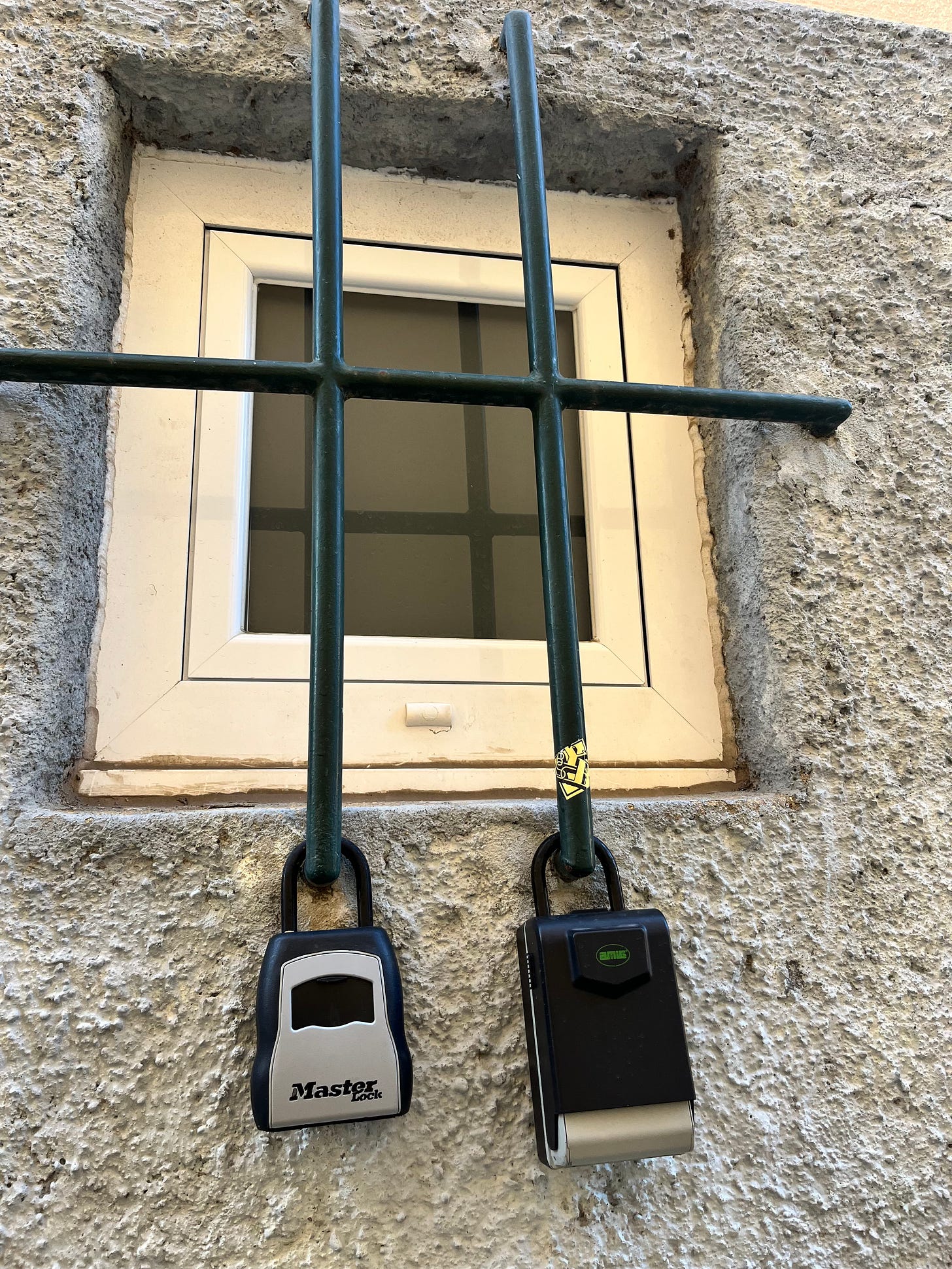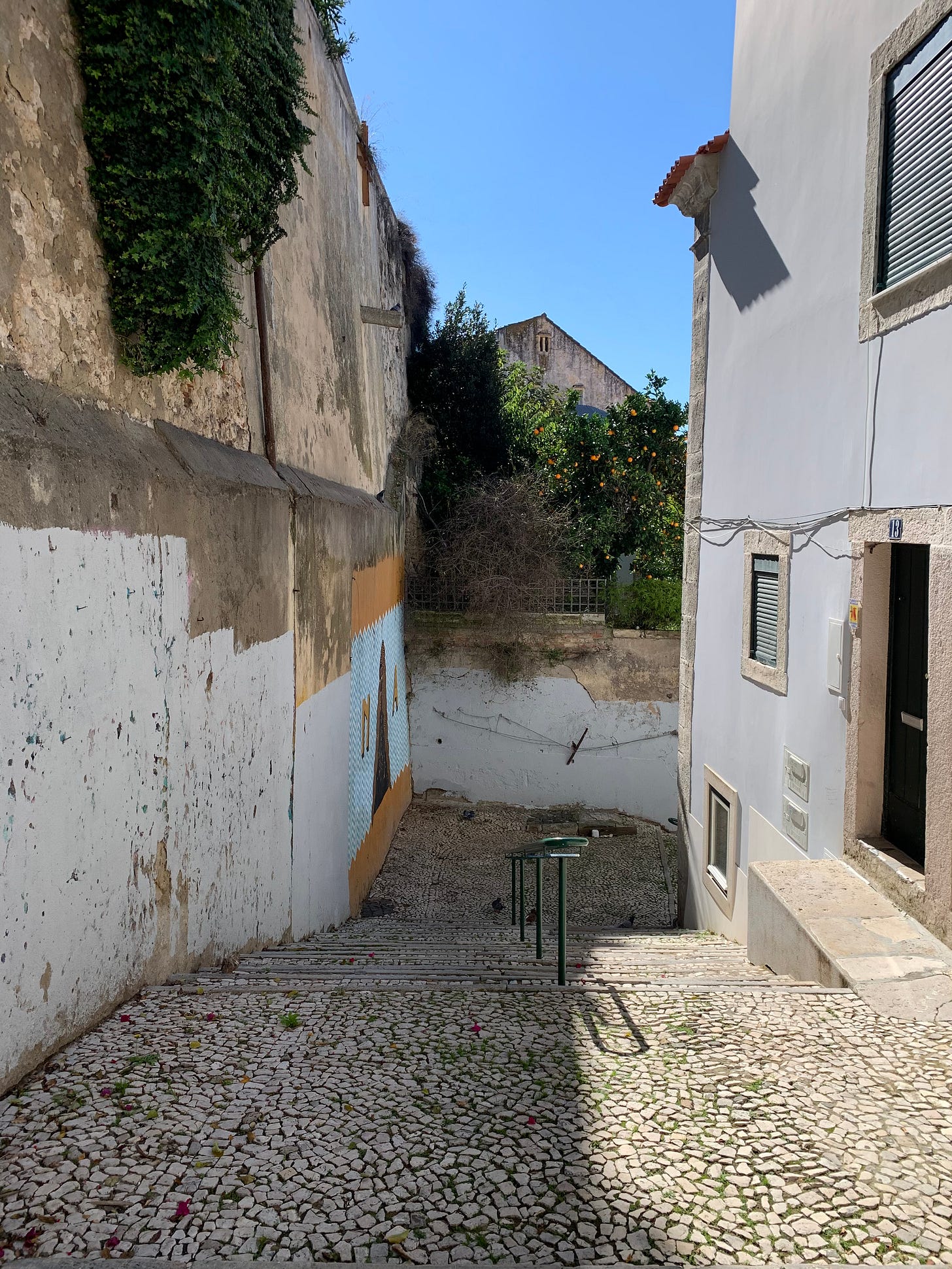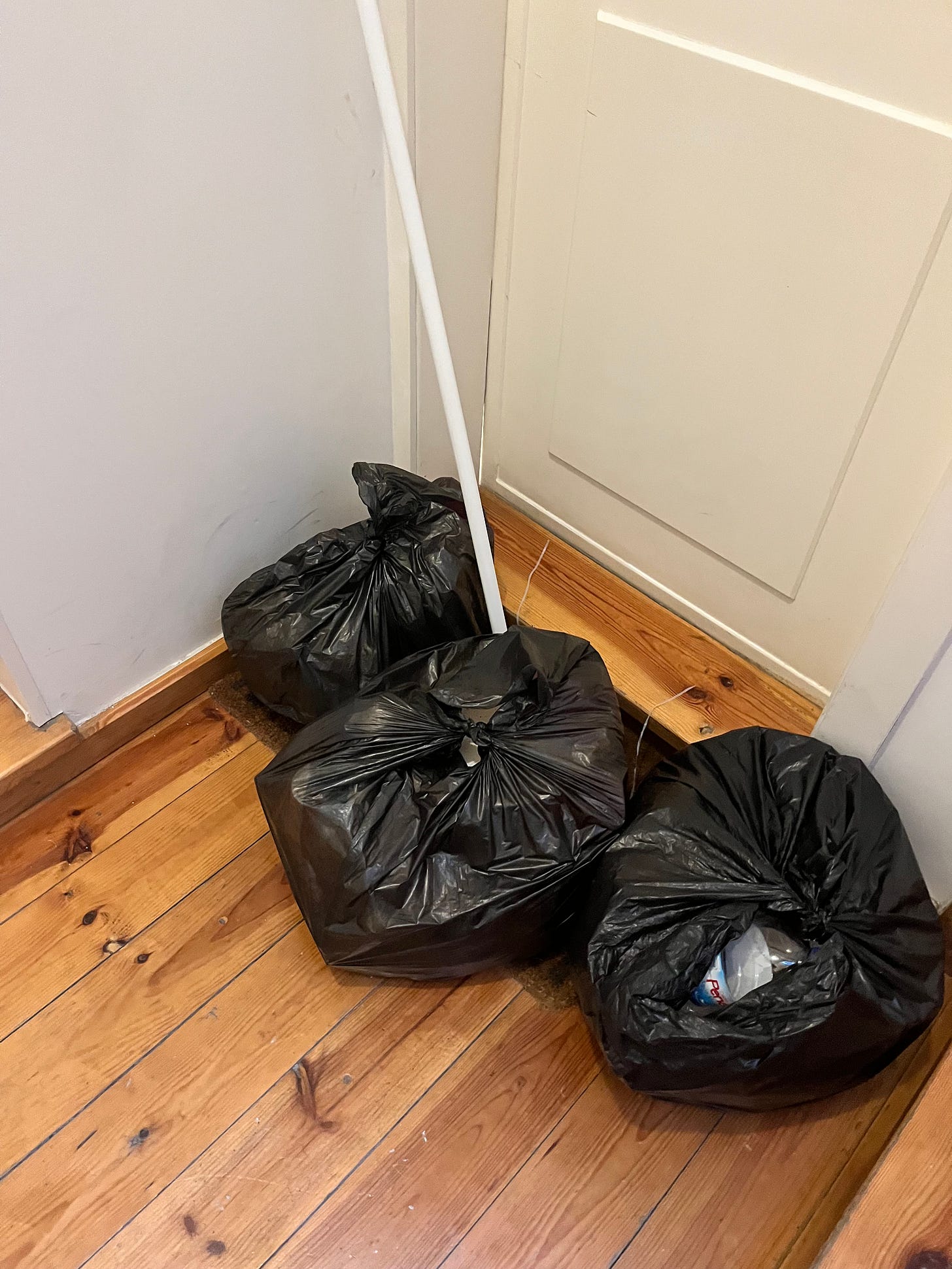Airbnb? The Arch-Enemy of Affordable Restaurants
The enshittification of any tourist desination starts fwith the de-professionalisation of hospitality
This is not scientific research, but I base this article on seven years of empirical observations.
Airbnb is, we all know, heavily impacting housing in most European historical city centres. Lisbon, Barcelona, Florence, and Venice: the lack of affordable housing is exacerbated by the availability of expensive short-term housing, which in some historical neighbourhoods reaches 70% of the total available housing.
Airbnb is also a contributing factor to the general enshittification of everything: you only need to put together a flat with badly mismatched IKEA furniture, a numerical door lock, and an underpaid cleaning service to run this predatory business.
Because Airbnb is not the Bed and Breakfast we imagine, with doting hosts preparing handmade breakfasts and caring for unique details that make a stay memorable, like we love to imagine in some idyllic English countryside.
Airbnb is a shitty accommodation, generally handled by profit-seeking companies that squeeze their hired cleaners workforce and mistreat their guests: in our building in Lisbon there are two Airbnb, both “handled” by the same shitty company whose owner is generally spending leisure time in Marbella, Spain, aboard his BMW convertible (yes, i can pewrform advanced OSINT on people, do not try me), and his guest are typically locked out of their rented accommodation because he does not provide them with the access code for the main door, or adequate instructions to navigate the maze-like downtown Lisbon.
We have often rescued lost Koreans and Russians, who were wandering and unable to find their way. All the while, he is spending money that was easily earned, living not so frugally in a country (Spain) where the cost of living is lower than in Portugal.
His cleaners, immigrants, of course, come in mid-morning, hauling gigantic blue IKEA bags packed with linens and cleaning products. They clean the house for the next guests who, predictably, have their unfriendly check-in time scheduled for some odd afternoon hour.
I avoid Airbnb as much as I can.
I do not have an infant to feed and put to sleep, and I do not want to have to clean up, prepare my meals, and wash dishes whenever I am not at home.
I know; I am privileged. I can avoid those flimsy IKEA-furnished places that once belonged to real people and now provide a complementary income to greedy nephews of those people or megacorporations investing heavily in brick and mortar.
I also love hotels.
My first apartment in the Netherlands was a former apartment hotel, one of those places where you could live. I would live in a hotel if I could afford it. Nowadays, it may seem unusual, but once upon a time, it was common for people to stay at hotels for an extended period.
Only in infrequent occasions (read: when there is nothing else available) I go for an AirBnB and I hate every bvit of the experience: from fiddling with codes and keys, to endure a strange smell of some other people’s home, to the aseptic yet fake and cheap look of most dwellings, to the awareness I am, subtracting vaklue instead of adding.
During my 7 years of observation, I have noticed that Airbnb dwellers generate a significant amount of waste. The picture above shows all the waste produced by two guests over a long weekend in one of the two small apartments rented out as an Airbnb in my building.
They also managed to break a broom or something, as a pole is sticking up. The black sacks are filled with general rubbish, undivided. A lot of bottles of water (even if the water in this building is quite good). A lot of takeout food, especially McDonald’s and the local supermarket's ready-made meals.
Your Airbnb guests typically eat fast food and supermarket-ready meals.
They heat it in the microwave at night, which is their dinner. At breakfast, some of them line up at one of the million copy-and-paste waffle and pancake cafes plaguing my neighbourhood, which charge 16 euros for a pancake.
At lunch, having invested all their hunger and money from breakfast, they may eat a sandwich (which is what they typically eat if they come from Germany, the East, or Northern Europe), or skip it altogether and have a pastel de nata or two.
At dinner, they hit the supermarket in groups and buy “local” ready food to reheat at home. If they are younger, they may go out afterwards for drinks.
Some of them may visit a restaurant once or twice during their stay.
But it will never be more than this. Their tired feet need to rest after a day of marching about, fueled by short-term holidays and touch-and-go experiences. They love the red double-decker hop-on and hop-off buses, queue for known attractions, and wil’t go off the beaten path, as they want to make the most of their short stay and tick all their ideal boxes.
Restaurants should start engaging with nearby hotels again.
Most tourists who aren’t gastronomers will end up following the suggestion of the doorman, the cab driver, or the friendly barmaid serving them with grace at the hotel: these are the “locals” these tourists will trust.
The same applies to other competitors, as well as bars and pastry shops: creating a referral network is crucial. If a non-gastronomic tourist eats well at a place, they may even ask where they can eat next, or not ask but listen carefully, full of ingenuity. Not everyone is a foodie, and not everyone plans their entire trip around restaurants, as we do.
They want to eat something and move on.
In the past, regular people travelled less, but gave themselves better experiences. Today, in this travel frenzy that pushes any middle-to-low-income person to travel on a budget, strung together by Flixbuses, Ryanair, and Airbnb, to get to a place that, all in all, resembles any other, some of the pampering of the past is lost.
And I am not saying taking up a suite at the local Ritz hotel. I am saying that taking up a room in any three-star hotel with minimum decency is a better option than a place where you can leave your bags (instead of roaming around the city and funding yet another shady “baggage locker” joint, once again powered by poorly paid migrants).
I mean staying at a Bed and Breakfast that is not just “air”, powered by real owners who will invest equally in the bed and breakfast side of things, providing a unique experience for their guests.
I suggest travelling less, but with more comfort, and especially, a bit more mutual respect for the local entrepreneurs and the visitors alike.











My level of hate to BnB model (and Uber and the likes) is so deep that, when in a travel, I even carry my suitcase avoiding to use the trolley, with those tiny wheels making that horrible-BnB-sound on the pavement 🤦😤😡
Gotta say-- I'm not sure what's up with the amount of garbage produced by Airbnb visitors. In our apartment building in Rome, we've had to put signs in every nook and corner of the building telling people not to leave their trash there. As an American, I get that the European system of sorting and separating can be challenging, and in Rome it can be confusing to understand where one SHOULD leave their garbage. But is it too much to ask that a Airbnb owner leave instructions for their guests as to where to discard what seems to be an endless stream of trash?